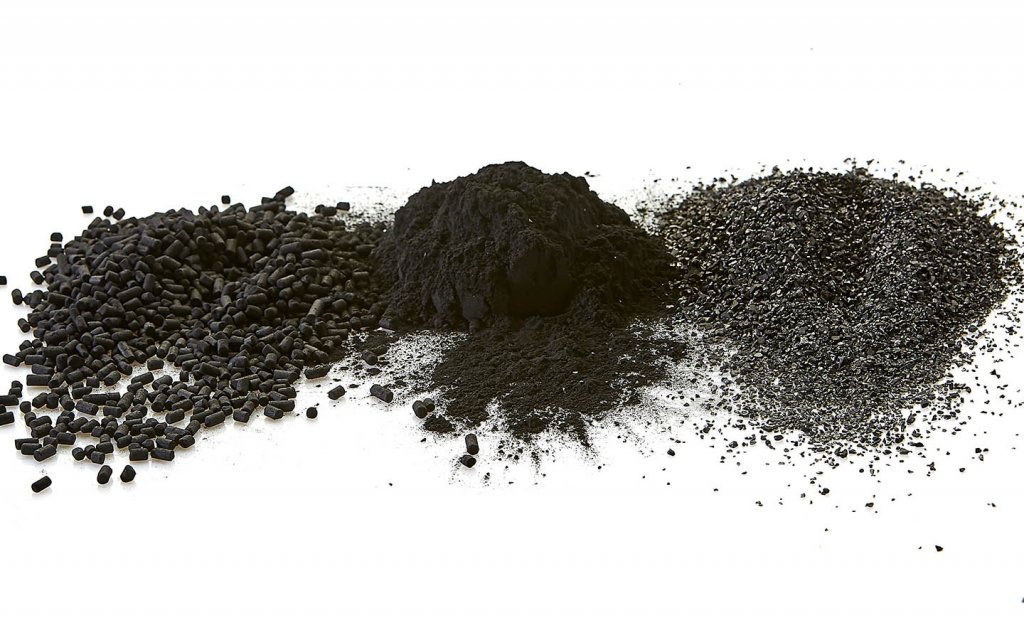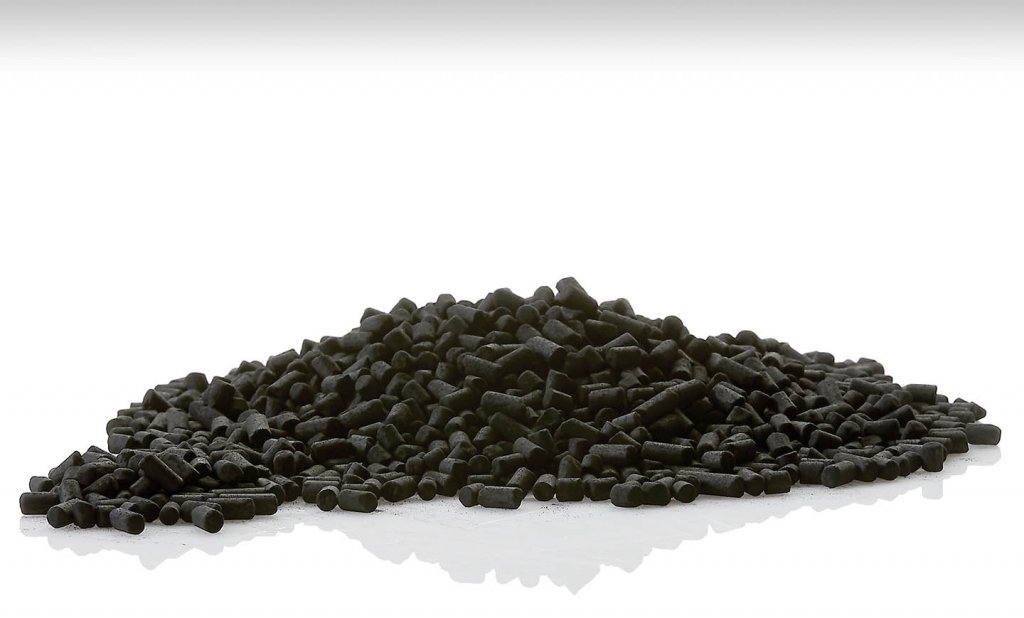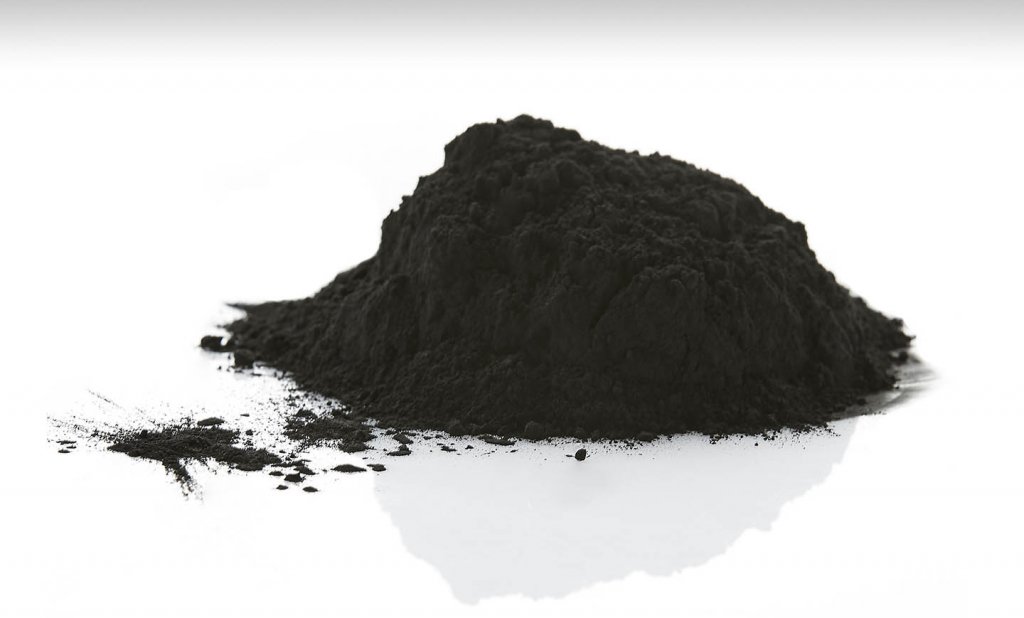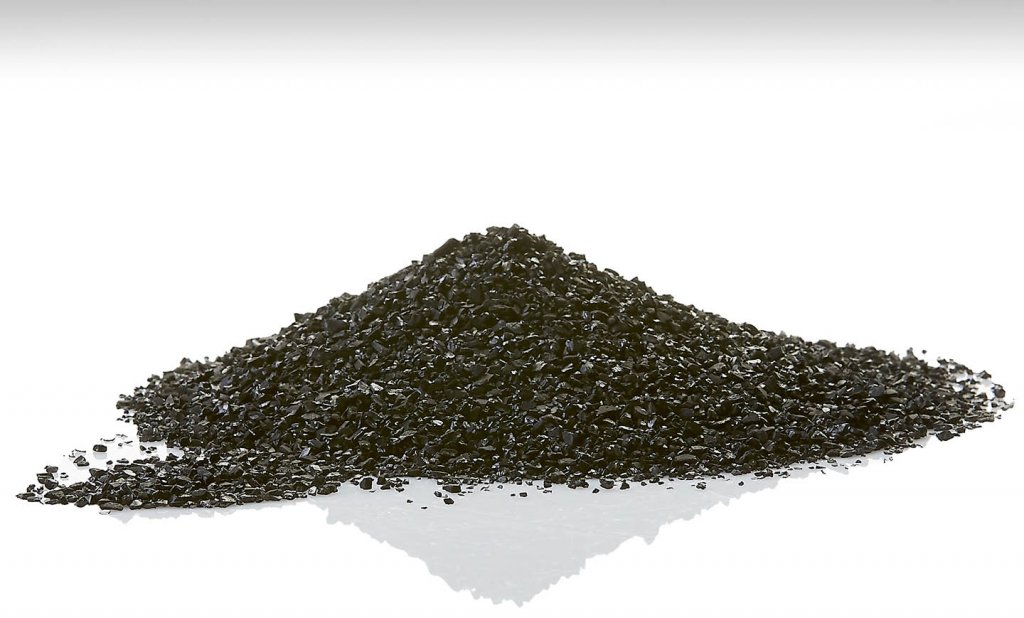Activated Carbon is an extremely porous material with very large internal surface, ranging between 600-1500m2/gr. These features allow it to retain a number of elements from liquid or solid masses.
As a result, Activated Carbon is an essential cleaning material in a number of industrial and urban applications, improving the final product (e.g. potable water) whilst protecting the environment.
Active Carbon is produced via a steam activation process from various raw materials such as charcoal, bituminous coal and coconut carbon.
The final product is usually offered in three forms: granular, extruded / pellet and powder, as well as in a wide range of types (simple, impregnated etc.)
Its absorption potential depends on the origin of the raw material, as well as on the activation process.
Main uses
Retention of organic and inorganic substances (chemicals, solvents, chlorine, smells etc.) from liquids and gases (water, waste, fumes, fuels etc.).
Main applications
- Potable water treatment
- Production of soft drinks & spirits
- Production of biogas
- Pharmaceuticals and chemicals production
- Industrial gases and fumes treatment
- Industrial waste treatment
Technical features
The various types of Activated Carbon, apart from their origin, are different in terms of their properties and specifications. The absorptivity of Active Carbon depends on the size and structure of its particles and is defined using specific methods.
The main technical features of Active Carbon are:
- Particle size
- Iodine number
- Methylene blue number
- BET surface
- Moisture content
- Dechlorination half value
- Bulk Density
- Ash & moisture content
- Hardness
Activated Carbon by STROUMBOULIS
STROUMBOULIS collaborates with and is the sole representative in Greece of one of the Leaders in the field of Active Carbon, the Manufacturer DonauCarbon GmbH & Co.KG.
The DonauCarbon brand, based in Frankfurt, Germany, has a history of over a century, exporting to over 50 countries around the world and has 3 production & processing factories. They are certified according to ISO 9001 and PEFV, offering all types of the product for general and specialised uses.
STROUMBOULIS offer the DonauCarbon Activated Carbon with all its certifications, according to the European Standard EN 12915, as well as with the flexibility – high quality service in terms of availability – deliveries to the Clients.

Available types
Water & liquids treatment
- Hydraffin CC8x30 (coconut) / EN 12915 for potable water treatment
- Hydraffin 30N & 40N (coal) / EN 12915 for water and waste treatment
- Hydraffin NA30 for aquariums’ filters
- Hydraffin P800
- Carbopal CCP90 / EN 12903 for organic elements’ retention from liquids and water
Gases treatment
- Desorex K47 for ventilation equipment (paint ovens, steakhouses, drycleaners etc.)
- Desorex K43 BG & K43 J for retention of siloxanes, refrigerants, biogas facilities
- Desorex PI50 impregnated, for retention of acid gases, pumping stations, biological treatment facilities
Various Uses
Carbopal CCP90 / EN 12903, suitable for retaining mycotoxines in animal feed
Available Packaging
- Bags 20 / 25 kg in pallets 500 kg
- Big bags 500 kg
USEFUL INFORMATION BY STROUMBOULIS:
5 KEY ΑΤΤΕΝΤΙΟΝ POINTS IN THE PROVISION & USE OF ΑCTIVE CARBON
- The key selection criteria for the quality of Activated Carbon are the raw material, the size of internal surface and the size of particles.
- Each use or application requires a specific type of Activated Carbon so as to optimise the efficiency of operation.
- Activated Carbon must have the appropriate certification depending on its use / intended application.
- After the end of use, saturated Activated Carbon may be recycled, through a specific “reactivation” process.
- The bulk density of Activated Carbon varies according to its type.





